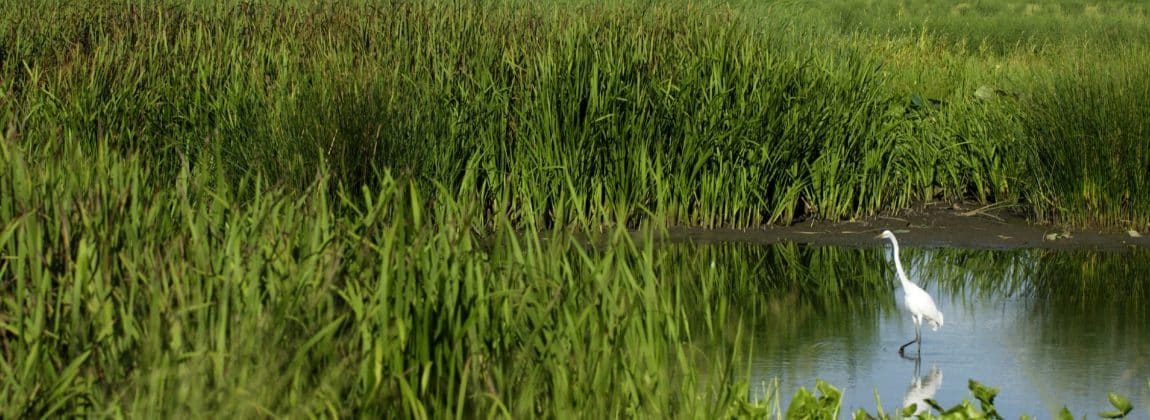(Jan. 16, 2025) – The Johnny Morris Institute of Fisheries, Wetlands and Aquatic Systems at the University of Missouri’s College of Agriculture, Food and Natural Resources (CAFNR) has selected Rick Relyea as its first director, starting July 1, 2025. In addition, Relyea will assume the William J. Rucker Professorship in Fisheries and Wildlife, in the School of Natural Resources.
“I am excited to be working with such an impressive partnership of conservation organizations,” Relyea said of his appointment. “The power of this partnership lies in the outstanding scientists and conservationists who are contributing their talents to make the Johnny Morris Institute of Fisheries, Wetlands and Aquatic Systems a national center for education, research and resource management.”
Relyea is currently David M. Darrin ’40 Senior Endowed Chair in the Department of Biological Sciences and acting department head of Earth & Environmental Sciences at Rensselaer Polytechnic Institute (RPI). He has also served as director of both the Darrin Freshwater Institute at RPI and of The Jefferson Project, a public-private collaboration to protect fresh water using advanced technologies. His specialization is in freshwater ecosystems, and he has been involved in education, mentoring, outreach and research throughout his career.
“Dr. Relyea brings a wealth of experience in running and revitalizing large operations similar to what our Institute aspires to be,” said Patrick Market, director of the School of Natural Resources. “I am confident in his leadership and his ability to help us create a sound foundation for the Institute for generations to come.”
Relyea received his Ph.D. from the University of Michigan in Biology (Ecology, Evolution, and Organismal Biology), and served as a postdoc at the University of Missouri. He was elected American Association for the Advancement of Science Fellow in 2021, and has received research, teaching and administrative awards throughout his career.
His research grant funding has totaled more than $10 million, including awards from the National Science Foundation and for The Jefferson Project, and he has published nearly 220 peer-reviewed papers and been an invited speaker across the globe. Relyea is the author of the leading textbooks in Ecology, AP Biology and AP Environmental Science. At RPI, he collaborated across disciplines to communicate the mission of the Darrin Freshwater Institute through the arts, including immersive educational games.
His lab group is a world leader in researching freshwater salinization, invasive species, pesticide ecotoxicology, disease ecology, forest inputs to wetlands, predator- and competitor-induced plasticity, freshwater monitoring, and harmful algal blooms.
“Dr. Relyea’s broad, comprehensive ecological interests fit well into our current programs in the School of Natural Resources. He is the right person to lead this important Institute for Missouri,” said Christopher Daubert, Vice Chancellor and Dean of the College of Agriculture, Food and Natural Resources. “As the inaugural director of the Johnny Morris Institute for Fisheries, Wetlands and Aquatic Systems, Rick is tasked with the diverse charges of research, outreach, education and policy analysis and creation.”
The Johnny Morris Institute of Fisheries, Wetlands and Aquatic Systems was established through a public-private partnership in March 2023, and was named for Johnny Morris, founder of Bass Pro Shops, headquartered in Springfield, Missouri, that fall. The Johnny Morris Institute supports cultivating conservation professionals through workforce development, research and public policy.
The Johnny Morris Institute is a partnership with the Missouri Department of Conservation (MDC), the Missouri Conservation Heritage Foundation (MCHF) and CAFNR, and was made possible through an MCHF endowment supported by leadership gifts from Johnny Morris and Chip and Teresa McGeehan, for whom the Chip and Teresa McGeehan Career Pathways Program within the Institute is named. MCHF has a mission to enhance the conservation of Missouri’s forest, fish and wildlife resources.
“The future success of the Johnny Morris Institute depends on strong, visionary leadership to cultivate the next generation of conservation professionals to advance the wellness of our watersheds,” said Tricia Burkhardt, executive director of the MCHF. “We are thrilled to welcome Dr. Relyea as the first director of the Johnny Morris Institute for Fisheries, Wetlands and Aquatic Systems. His demonstrated experience in leading other institutes showcases his abilities to inspire students and build partnerships. We are excited to work with Dr. Relyea and our partners at CAFNR and MDC to build the Johnny Morris Institute into a national model for fisheries, wetlands and aquatic systems education, research, policy and outreach.”
Aquatic systems are composed of the entire ecosystem within a body of water — a wetland, lake, river, stream or pond. Quality management of these systems provide clean water and recreation for people and wildlife habitats.
“We are thrilled to add Dr. Relyea as the first permanent director of the Institute,” said Jason Sumners, director of MDC. “We look forward to working with Dr. Relyea, along with our partners at MCHF and CAFNR, to make the Johnny Morris Institute of Fisheries, Wetlands and Aquatic Systems a national leader in training the next generation of conservation professionals.”
Relyea shares this vision for the Johnny Morris Institute to be a national center for education, research and outreach.
“On the education front, we will train undergraduate and graduate students to become the next generation of scientists and resource managers for the Missouri Department of Conservation and other employers throughout the country,” he said. “On the research front, we will work with public and private organizations to help improve the management of fisheries, wildlife and aquatic ecosystems. Finally, we will conduct public outreach to inspire families to appreciate and value the precious natural resources of our region.”
Learn more about the Johnny Morris Institute at fwas.missouri.edu.










